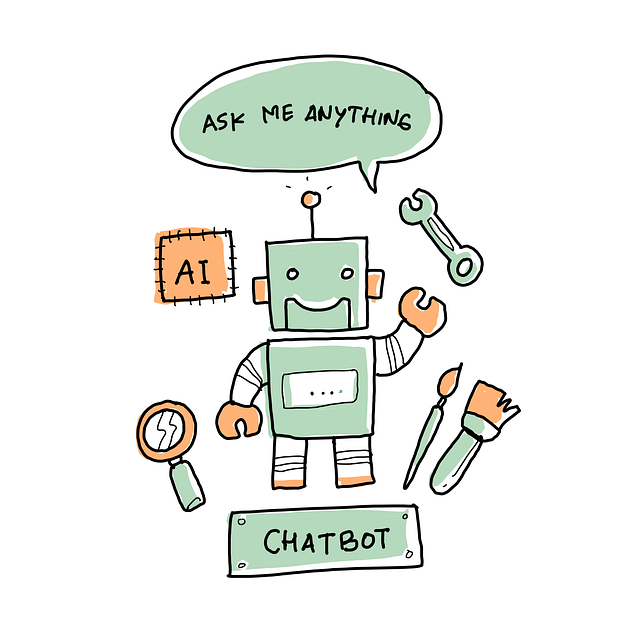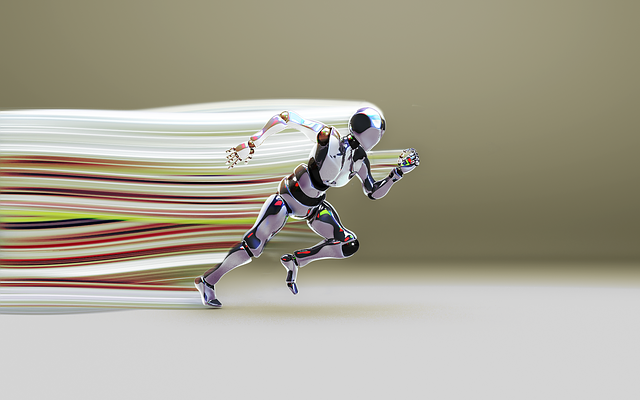Revolutionizing Investments: The Rise of AI Trading Bot Apps
Author: Jameson Richman Expert
Published On: 2024-10-04
Prepared by Jameson Richman and our team of experts with over a decade of experience in cryptocurrency and digital asset analysis. Learn more about us.
In the ever-evolving financial landscape, technology continues to reshape how individuals invest and trade in markets. One of the most significant innovations in recent years is the emergence of AI trading bot applications. These sophisticated tools, powered by artificial intelligence algorithms, promise to enhance decision-making, minimize emotional trading, and optimize investment strategies. This article explores the functionalities, advantages, challenges, and future potential of AI trading bots in the financial markets.

Understanding AI Trading Bots
AI trading bots are software programs designed to execute trades on behalf of users. These bots utilize advanced algorithms and machine learning techniques to analyze vast amounts of market data, identify trading patterns, and execute trades at optimal times. Their ability to process information more quickly and accurately than humans leads to potentially higher profit margins and reduced risks.
How AI Trading Bots Work
At their core, AI trading bots use historical data and real-time market insights to forecast price movements and execute trades. Here’s a simplified overview of how these systems function:
- Data Collection: Trading bots gather data from various sources, including market prices, news headlines, and economic indicators. This information is critical for making informed trading decisions.
- Data Analysis: Using machine learning algorithms, these bots analyze the collected data to identify trends and patterns that could indicate future price movements.
- Decision Making: Based on their analysis, the bots formulate trading strategies that dictate when to buy or sell a security.
- Execution: Once the decision is made, the bot automatically executes the trade on the user’s behalf, often much faster than a human could.
Types of AI Trading Bots
There are various types of AI trading bots, each with unique functionalities and specializations:
- Market-Making Bots: These bots provide liquidity to markets by placing both buy and sell orders simultaneously. Their goal is to profit from the spread between these orders.
- Trend-Following Bots: They analyze market trends and attempt to make trades that capitalize on these movements, working under the assumption that prices will continue to move in the same direction.
- Arbitrage Bots: These bots exploit price discrepancies between different exchanges or markets, quickly buying low in one and selling high in another.
Advantages of AI Trading Bots
The adoption of AI trading bots has surged due to their numerous benefits. Here are some of the key advantages:
24/7 Market Monitoring
AI trading bots operate around the clock, allowing them to monitor the markets continuously without rest. This gives traders the advantage of being alerted to significant market movements, even when they are not actively watching.
Elimination of Emotional Trading
One of the most critical aspects of successful trading is overcoming emotional bias. Humans often make decisions based on fear, greed, and other emotions, leading to poor trading results. AI trading bots operate on data and predefined rules, eliminating emotional decision-making.
Increased Trading Speed
The speed at which AI trading bots can execute trades surpasses that of human traders. In financial markets, where every second counts, this speed can make a significant difference in profitability.
Challenges and Risks of AI Trading Bots
Despite their advantages, AI trading bots are not without challenges and risks. Understanding these factors is crucial for traders considering their use.
Market Volatility
Financial markets can be highly volatile and unpredictable. While AI trading bots are equipped to handle historical data, sudden changes or unforeseen events can result in losses. Bots may not always adapt swiftly to dramatic market shifts.
Dependence on Technology
AI trading bots rely heavily on technology and data. System failures, software bugs, or connectivity issues could hinder performance and lead to substantial losses. Traders need to have contingency plans in place.
Lack of Regulatory Oversight
The rapid rise of AI trading bots has outpaced regulatory frameworks in many regions. This lack of oversight can lead to unethical practices, including market manipulation. Traders should exercise caution and conduct thorough research before using any trading bot.

The Future of AI Trading Bots
The future of AI trading bots appears promising, with ongoing advancements in technology and machine learning. Here are a few potential trends that could shape their evolution:
Greater Integration and Accessibility
As technology progresses, we can expect deeper integration of AI trading bots into various trading platforms, making them more accessible to a broader audience. This accessibility could empower even beginner traders to leverage sophisticated strategies.
Enhanced Predictive Capabilities
With improving algorithms and richer datasets, AI trading bots will likely develop enhanced predictive capabilities. This will enable even more accurate forecasting of price movements, helping traders to make more informed decisions.
User-Centric Customization
Future AI trading bots will potentially offer greater customization for users. Traders could tailor bots to their risk tolerance, investment goals, and market preferences, resulting in more personalized trading experiences.
Conclusion: Are AI Trading Bots Worth It?
In conclusion, AI trading bots represent a significant advancement in trading technology, offering numerous benefits including 24/7 monitoring, elimination of emotional trading, and enhanced speed. However, they are not without their challenges, such as market volatility and technical failures. Thus, traders must weigh the potential rewards against the risks involved.
In my opinion, while AI trading bots offer powerful tools for modern traders, they should be used with caution. They complement human insight but should not replace it. Technologies like these can help optimize trading strategies, but a balanced approach that integrates human analysis and technological assistance is essential for long-term success. It's vital for traders to remain engaged in the process and continually educate themselves about both market dynamics and the technology they choose to employ.
Ultimately, whether through AI trading bots or traditional methods, informed decision-making remains the cornerstone of successful investing. With the right information and tools, traders can navigate the complexities of financial markets and make strides toward achieving their investment objectives.